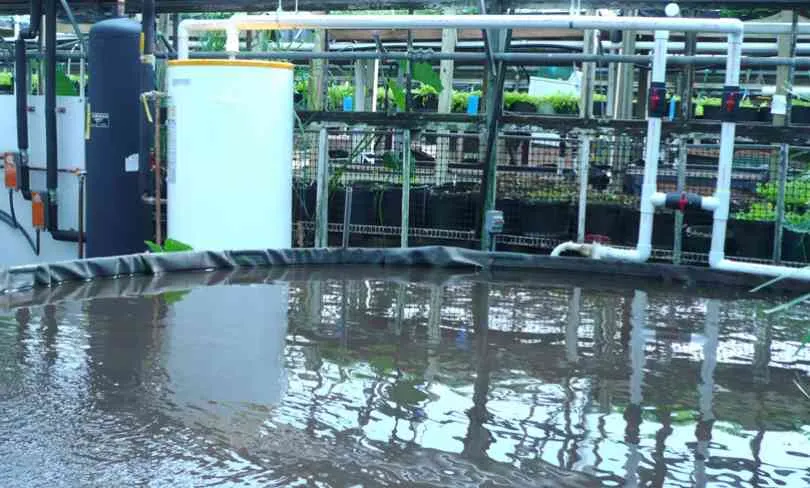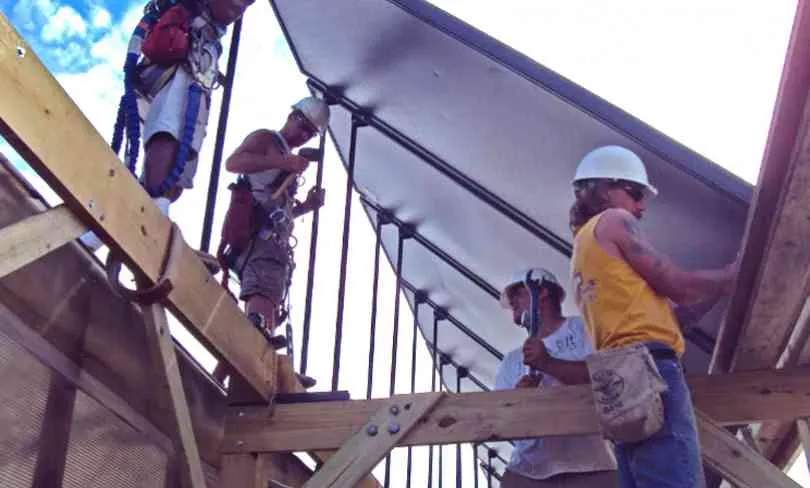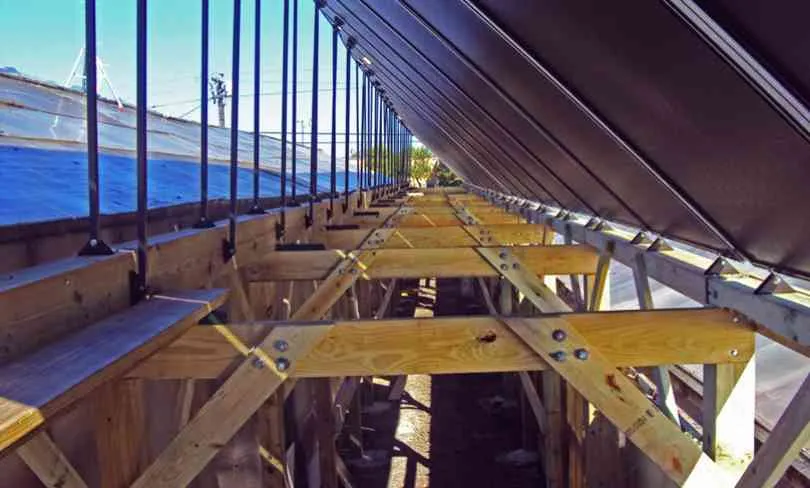Warming Fish for Food
Project (Summer 2010): Offset Cost to Heat Fish Ponds
Place: Milwaukee, Wis.
Design: Caleffi Solar Collectors, Solar Controller, Solar Storage Tanks
Purchaser: (Contractor) Unlimited Renewable Energies - Prairie du Sac, Wis., (Wholesaler) Design Air - Milwaukee, Wis.
Growing Power Milwaukee is a unique organization. Operating from one of the oldest continuously working greenhouses in the country, this non-profit serves as a model for inner city food production and education. Headed by CEO Will Allen, the conservation minded group of “growers” raises fresh produce as well as tilapia and yellow perch.
Inside the greenhouse are two large tank ponds used for raising the tilapia, which are fed by runoff from the raised growing beds located above the ponds. This popular and tasty fish is found on dinner tables across America. The tilapia tanks need to be maintained at 80°F year-round. Growing Power, until recently accomplished this with natural gas fired pool heaters. The heaters consume a lot of fuel and require constant cleaning due to the quality of water that passes through them.
Growing Power worked with Caleffi, Design Air, and installing contractor Unlimited Renewable Energies to devise a solar thermal solution for lowering the fuel bills. Mike Schreiner of Caleffi served as the “consulting engineer” and put together a unique closed loop glycol system utilizing two Caleffi SolarCon™ storage tanks. A diverting valve selects between the two tanks. A Caleffi data logger provides temperature and run time information to calculate energy savings.
Twenty-four 10’ Caleffi solar collectors were specified to accomplish the goal of a 70% reduction in fuel. The collector array was cleverly mounted between two of the seven greenhouse roofs. An elevated stand provided a location for a heat dump zone fan coil. It is always best to utilize the energy before enabling the dump zone radiator.The staff at GP is already looking at other uses for the excess summer heat produced such as vegetable washing, kitchen clean up, etc.
This project will serve as the model in hopes that other cities may also pursue similar initiatives to produce healthy food in inner city settings, and raise awareness of the potential for solar thermal.




















